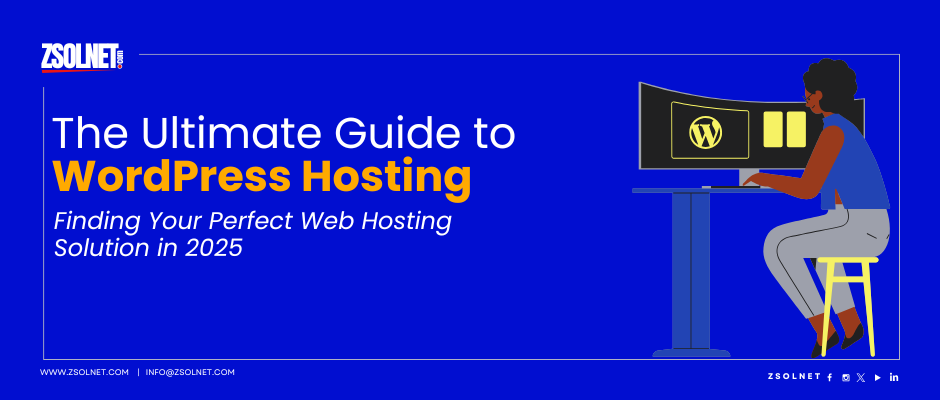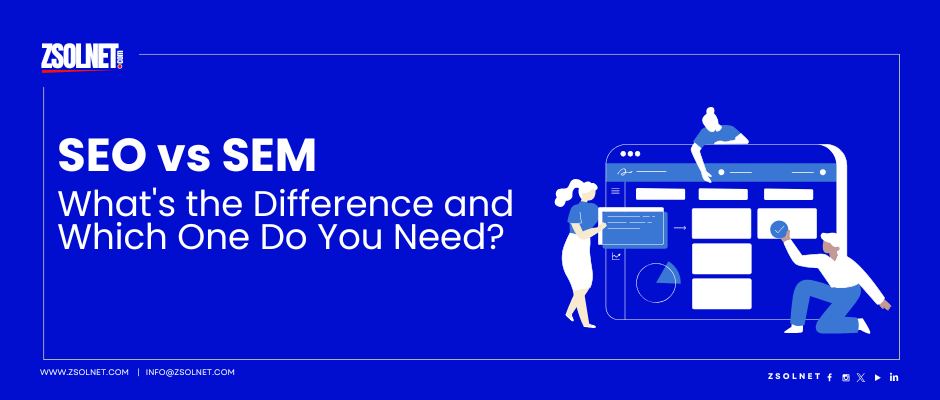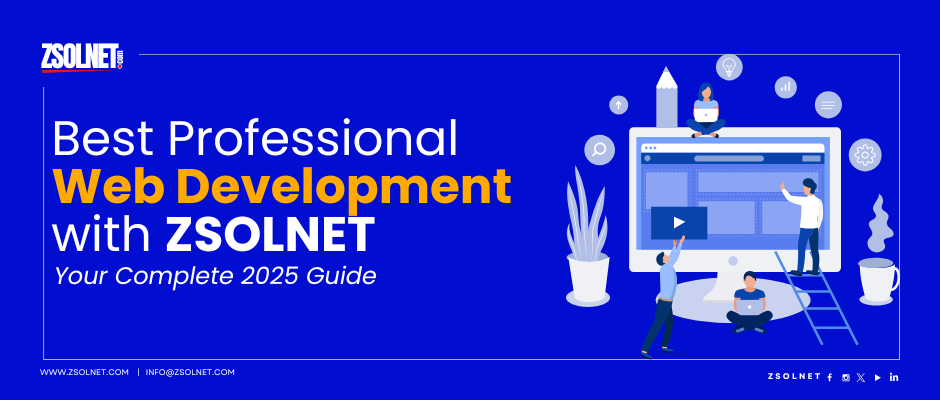Whether launching your first blog or scaling an enterprise website, choosing the right WordPress hosting can make or break your online success. With over 43% of all websites powered by WordPress, the hosting landscape has evolved dramatically, offering everything from budget-friendly shared plans to lightning-fast managed WordPress solutions.
At ZSOLNET, we understand that WordPress hosting is just one piece of your digital success puzzle. As a comprehensive digital services provider offering domain registration, web hosting, digital marketing, SEO services, social media management, and ongoing web maintenance, we’ve seen firsthand how the right hosting foundation amplifies the effectiveness of your entire digital strategy.
WordPress hosting can feel overwhelming with countless providers promising the moon and stars. But here’s the reality: not all hosting is created equal, and your choice will directly impact your site’s performance, security, and growth potential. This comprehensive guide cuts through the marketing noise to help you understand what truly matters when selecting WordPress hosting for your specific needs.

The ZSOLNET Advantage: Beyond Just WordPress Hosting
At ZSOLNET, we take a holistic approach to your online presence. While choosing the right WordPress hosting forms the technical foundation of your website, true digital success requires seamless integration of multiple services. Our comprehensive digital solutions include:
Domain and Hosting Services: From domain registration to high-performance WordPress hosting, we ensure your website has a solid technical foundation.
Digital Marketing Excellence: Our digital marketing strategies amplify your hosting investment by driving targeted traffic to your optimized website.
SEO Services: Professional SEO services work hand-in-hand with quality hosting to improve your search engine visibility and rankings.
Social Media Management: Effective social media management drives traffic back to your well-hosted WordPress site, creating a cohesive digital ecosystem.
Ongoing Web Maintenance: Regular web maintenance ensures your WordPress hosting continues performing optimally while keeping your site secure and updated.
This integrated approach means your WordPress hosting choice supports and enhances every aspect of your digital marketing efforts, creating synergy that individual services simply cannot achieve.
Understanding WordPress Hosting: The Foundation of Your Online Presence
WordPress hosting refers to web hosting services specifically optimized for WordPress websites. Unlike generic web hosting, these specialized services are configured with WordPress-specific features, enhanced security measures, and performance optimizations that make your WordPress site run smoother and faster.
The key difference lies in the server environment. While you can technically run WordPress on any web hosting service, WordPress-specific hosting providers fine-tune their servers for optimal WordPress performance. This includes pre-installed WordPress software, automatic updates, specialized caching mechanisms, and security protocols designed specifically for WordPress vulnerabilities.
When evaluating WordPress hosting options, you’ll encounter several distinct types, each serving different needs and budgets. Understanding these categories is crucial for making an informed decision that aligns with your website’s requirements and growth trajectory. For businesses investing in professional digital marketing and SEO services, the hosting choice becomes even more critical as it directly impacts the effectiveness of these marketing efforts.
Types of WordPress Hosting: Choosing Your Perfect Match
Shared WordPress Hosting
Shared hosting remains the most popular entry point for new WordPress users, and for good reason. In this setup, your website shares server resources with dozens or even hundreds of other sites. While this keeps costs low, it also means your site’s performance can be affected by other websites on the same server.
The best WordPress hosting providers in the shared category offer WordPress-specific optimizations even at budget-friendly price points. These typically include one-click WordPress installation, automatic WordPress updates, and basic security features. For personal blogs, small business websites, or hobby projects expecting moderate traffic, shared WordPress hosting often provides excellent value.
However, shared hosting has limitations. During traffic spikes or if neighboring sites consume excessive resources, your website may experience slower loading times. Additionally, customization options are often restricted, and you’ll have less control over server configurations.
Virtual Private Server (VPS) WordPress Hosting
VPS hosting bridges the gap between shared and dedicated hosting, offering more resources and control while maintaining affordability. Your website operates in its own virtual environment with dedicated CPU, RAM, and storage allocation, providing more predictable performance than shared hosting.
WordPress hosting reviews consistently highlight VPS solutions for growing websites that have outgrown shared hosting but don’t yet need dedicated servers. With VPS hosting, you gain root access to your server environment, allowing for custom configurations and specialized WordPress optimizations.
The trade-off is increased complexity. VPS hosting often requires more technical knowledge to manage effectively, though many providers offer managed VPS options that handle server administration while giving you enhanced performance and flexibility.
Managed WordPress Hosting
Managed WordPress hosting represents the premium tier of WordPress-specific services. These providers handle all technical aspects of hosting your WordPress site, including security monitoring, automatic backups, performance optimization, and even WordPress updates.
What sets managed WordPress hosting apart is the level of specialization. Servers are configured exclusively for WordPress, often featuring advanced caching systems, content delivery networks (CDN), and security measures specifically designed for WordPress vulnerabilities. Many managed providers also offer staging environments, developer tools, and expert WordPress support.
The investment in managed WordPress hosting pays dividends for business-critical websites, high-traffic blogs, or sites where downtime costs money. While more expensive than other options, the peace of mind and performance benefits often justify the cost for serious WordPress users.
Dedicated WordPress Hosting
For high-traffic websites or applications requiring maximum performance and security, dedicated WordPress hosting provides an entire server exclusively for your website. This option offers complete control over server resources and configurations, making it ideal for large businesses, popular blogs, or WordPress sites with specific compliance requirements.
Dedicated hosting comes with the highest price tag and typically requires significant technical expertise to manage effectively. However, for websites generating substantial revenue or handling sensitive data, the investment in dedicated infrastructure often proves worthwhile.
Key Features to Consider When Choosing WordPress Hosting
Performance and Speed Optimization
Site speed directly impacts user experience, search engine rankings, and conversion rates. The best WordPress hosting providers implement multiple performance optimization strategies, including SSD storage, advanced caching mechanisms, and content delivery networks.
Look for hosts that offer WordPress-specific performance features like object caching, database optimization, and image compression. Some providers even include built-in performance monitoring tools that help identify and resolve speed bottlenecks before they impact your visitors.
Server location also plays a crucial role in performance. Choose hosting providers with data centers near your primary audience for optimal loading speeds. Many top WordPress hosts offer multiple data center locations, allowing you to serve content from the server closest to your users.
Security Features and Protocols
WordPress powers millions of websites, making it a popular target for cyberattacks. Robust security should be non-negotiable when evaluating WordPress hosting options. Essential security features include malware scanning, firewall protection, SSL certificates, and regular security updates.
Advanced WordPress hosting providers go beyond basic security with features like two-factor authentication, IP blocking, brute force protection, and automated malware removal. Some even offer security guarantees, promising to clean your site if it gets hacked or provide compensation for downtime caused by security breaches.
Regular backups form another critical component of WordPress security. Look for hosts that provide automated daily backups with easy restoration options. The ability to quickly restore your site from a clean backup can be invaluable if security issues arise.
Scalability and Growth Potential
Your hosting needs will evolve as your website grows. The best WordPress hosting solutions offer clear upgrade paths that allow you to scale resources without migrating to entirely new platforms. This might include the ability to increase bandwidth, storage, or processing power with minimal downtime.
Some providers offer automatic scaling features that adjust resources based on traffic demands. While more expensive, this approach ensures your site remains responsive during traffic spikes without requiring manual intervention or expensive over-provisioning.
Consider both horizontal and vertical scaling options. Horizontal scaling involves distributing load across multiple servers, while vertical scaling increases resources on your existing server. Different hosting architectures excel at different scaling approaches.
Affordable WordPress Hosting Options: Quality on a Budget
Budget-conscious website owners shouldn’t compromise on quality when seeking affordable WordPress hosting options. Several reputable providers offer feature-rich WordPress hosting at competitive prices, making professional web hosting accessible to individuals and small businesses.
When evaluating budget WordPress hosting, focus on value rather than just price. The cheapest option isn’t always the most economical if it results in poor performance, frequent downtime, or inadequate support. Look for providers that offer transparent pricing, clear resource allocations, and positive user reviews.
Many affordable WordPress hosting providers offer introductory pricing that increases upon renewal. Factor these price increases into your long-term budget to avoid surprises. Some hosts also charge extra for features like SSL certificates, backups, or premium support that other providers include at no additional cost.
Consider the total cost of ownership when comparing affordable WordPress hosting options. A slightly more expensive plan that includes essential features might be more economical than a cheaper plan that requires costly add-ons.
WordPress Hosting Reviews: What Users Experience
Real user experiences provide invaluable insights into WordPress hosting performance beyond marketing claims. WordPress hosting reviews reveal common patterns in user satisfaction, highlighting both strengths and weaknesses across different providers.
Uptime reliability consistently emerges as a top concern in user reviews. While most providers advertise 99.9% uptime, real-world performance can vary significantly. Look for reviews that mention specific uptime experiences over extended periods rather than short-term tests.
Customer support quality varies dramatically between WordPress hosting providers. Reviews often highlight response times, technical expertise, and problem resolution effectiveness. For non-technical users, quality support can be the difference between a minor inconvenience and a major crisis.
Performance consistency also features prominently in user reviews. Some hosts perform well under normal conditions but struggle during traffic spikes or peak usage periods. Reviews from users with similar traffic patterns to your website provide the most relevant insights.
Making Your WordPress Hosting Decision: A Strategic Approach
Choosing the right WordPress hosting requires balancing multiple factors, including performance requirements, budget constraints, technical expertise, and growth projections. Start by honestly assessing your current needs and realistic growth expectations over the next 1-2 years.
Create a prioritized list of must-have features versus nice-to-have extras. This helps focus your evaluation on providers that meet your core requirements rather than getting distracted by flashy features you may never use.
Consider starting with a shorter-term commitment to test a provider’s performance and support quality before committing to longer contracts. Many hosts offer money-back guarantees that allow you to switch if the service doesn’t meet expectations.
Don’t underestimate the importance of migration support if you’re switching from another host. Quality WordPress hosting providers often offer free migration services that handle the technical aspects of moving your site, reducing the risk of downtime or data loss.
Future-Proofing Your WordPress Hosting Choice
The web hosting landscape continues evolving with new technologies like edge computing, improved security protocols, and enhanced performance optimization techniques. Choose WordPress hosting providers that demonstrate a commitment to innovation and staying current with industry developments.
Consider how emerging trends might impact your hosting needs. For example, Core Web Vitals and other performance metrics increasingly influence search rankings, making performance-optimized hosting more critical for SEO success. Similarly, privacy regulations may require hosting providers to offer enhanced data protection features.
Evaluate your chosen provider’s track record of adopting new technologies and improving their service offerings. Providers that regularly update their infrastructure and add new features are more likely to serve your needs well as requirements evolve.
Conclusion: Your WordPress Hosting Journey Starts Here
Selecting the right WordPress hosting sets the foundation for your website’s success. Whether you’re seeking affordable WordPress hosting options for a personal blog or enterprise-grade managed solutions for a business-critical application, the key lies in matching hosting features to your specific needs and growth trajectory.
At ZSOLNET, we understand that WordPress hosting is just the beginning of your digital journey. Our comprehensive approach combines reliable hosting with expert digital marketing, professional SEO services, strategic social media management, and ongoing web maintenance to create a powerful digital presence that drives real results.
Remember that WordPress hosting is an investment in your online presence, not just an expense. Quality hosting pays dividends through improved performance, enhanced security, and reduced maintenance headaches that allow you to focus on creating great content and growing your audience. When combined with professional digital services, the right hosting choice amplifies every aspect of your online marketing efforts.
The WordPress hosting landscape offers something for everyone, from budget-friendly shared plans to high-performance dedicated solutions. By understanding your requirements, carefully evaluating options, and choosing a reputable provider, you’ll establish a solid foundation for your WordPress website’s long-term success.
Ready to take your WordPress hosting and digital presence to the next level? Contact ZSOLNET today to discover how our integrated approach to domain registration, web hosting, digital marketing, SEO, social media management, and web maintenance can transform your online success. Let us handle the technical complexities while you focus on growing your business.



